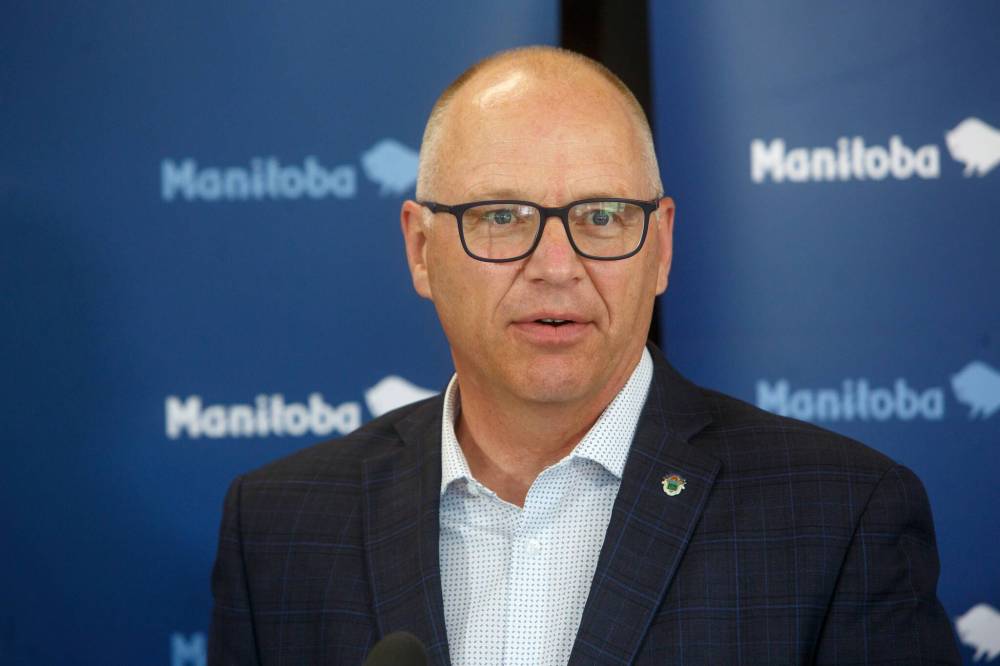Gillingham in Houston with homeless Winnipeggers on mind
Advertisement
Read this article for free:
or
Already have an account? Log in here »
To continue reading, please subscribe:
Monthly Digital Subscription
$0 for the first 4 weeks*
- Enjoy unlimited reading on winnipegfreepress.com
- Read the E-Edition, our digital replica newspaper
- Access News Break, our award-winning app
- Play interactive puzzles
*No charge for 4 weeks then price increases to the regular rate of $19.00 plus GST every four weeks. Offer available to new and qualified returning subscribers only. Cancel any time.
Monthly Digital Subscription
$4.75/week*
- Enjoy unlimited reading on winnipegfreepress.com
- Read the E-Edition, our digital replica newspaper
- Access News Break, our award-winning app
- Play interactive puzzles
*Billed as $19 plus GST every four weeks. Cancel any time.
To continue reading, please subscribe:
Add Free Press access to your Brandon Sun subscription for only an additional
$1 for the first 4 weeks*
*Your next subscription payment will increase by $1.00 and you will be charged $16.99 plus GST for four weeks. After four weeks, your payment will increase to $23.99 plus GST every four weeks.
Read unlimited articles for free today:
or
Already have an account? Log in here »
Hey there, time traveller!
This article was published 12/09/2023 (821 days ago), so information in it may no longer be current.
Researching one American city’s success in combating homelessness has underlined the need for a more co-ordinated effort to help unsheltered Winnipeggers, says Mayor Scott Gillingham.
On Sunday, Gillingham arrived in Houston seeking to learn about the southeast Texas city’s The Way Home housing initiative.
He plans to return Wednesday to Winnipeg with a renewed goal of creating a local strategy that brings together the provincial government, municipal government and social service agencies into one coherent plan.

Mike Deal / Winnipeg Free Press Files
Researching one American city’s success in combating homelessness has underlined the need for a more co-ordinated effort to help unsheltered Winnipeggers, says Mayor Scott Gillingham.
“We’re learning what they have focused on and how they have been able to house, since (2012), almost 30,000 people… They use one plan. That is very critical,” Gillingham said Tuesday in a phone interview from Houston, a city of some 2.3 million residents.
The Way Home initiative involves more than 100 social service, government and community partners, with a focus on finding permanent housing people living on the street can move directly into, according to its website.
“We move people into permanent housing as quickly as possible and then provide them with supportive services (case management, health care, substance use counseling, income coaching, and more) to help them remain stabilized in housing and improve their quality of life,” the website notes.
Gillingham did not commit to replicating specific elements of the Houston plan in Winnipeg. He did note extensive data-sharing between agencies and work to ensure agencies each focus on specific goals as highlights of the American initiative.
“You don’t have a bunch of agencies doing the same thing, where there’s a lot of overlap and repetition with limited impact,” he said.
The mayor made the trip with chief of staff Destiny Watt and senior adviser on homelessness Jarred Baker.
Provincial political parties are now being surveyed about where they stand on social housing, as battling homelessness becomes a key issue in the election campaign.
Houston’s program has been much-discussed in recent months, but at its core is a housing-first model the City of Winnipeg has already been committed to for many years.
The problem, advocates say, is Winnipeg doesn’t have enough social and affordable housing to move people in to. Manitoba needs 10,000 additional social housing units to meet the current need, according to a report released last week by Right to Housing Coalition. The city previously committed to building 2,200 units of affordable housing.
“It’s an issue of, where’s the supply?” said Shauna MacKinnon, professor and chair of the University of Winnipeg’s department of urban and inner-city studies.
Appropriate housing means safe shelter that includes wraparound support for newly housed tenants, she added. “I’m not really sure why everybody is suddenly enamoured with this Houston model; there’s nothing new, really, to look at.”
The City of Winnipeg could improve its collaboration with outreach agencies, said Kate Sjoberg, Main Street Project community initiatives co-ordinator, who noted that kind of collaboration is a major part of the Houston program’s success.
There has been an escalation in last-minute displacements from encampments in Winnipeg, despite a protocol that states outreach organizations will be contacted first when there’s a safety concern before municipal officials break up such camps, said Sjoberg.
“We need to re-establish our collaboration between the city and community when it comes to upholding a human rights approach to people living unsheltered, and remember that people are living unsheltered because we have a lack of housing in Winnipeg.”
— with files from Katie May
joyanne.pursaga@freepress.mb.ca
Twitter: @joyanne_pursaga

Joyanne is city hall reporter for the Winnipeg Free Press. A reporter since 2004, she began covering politics exclusively in 2012, writing on city hall and the Manitoba Legislature for the Winnipeg Sun before joining the Free Press in early 2020. Read more about Joyanne.
Every piece of reporting Joyanne produces is reviewed by an editing team before it is posted online or published in print — part of the Free Press‘s tradition, since 1872, of producing reliable independent journalism. Read more about Free Press’s history and mandate, and learn how our newsroom operates.
Our newsroom depends on a growing audience of readers to power our journalism. If you are not a paid reader, please consider becoming a subscriber.
Our newsroom depends on its audience of readers to power our journalism. Thank you for your support.












